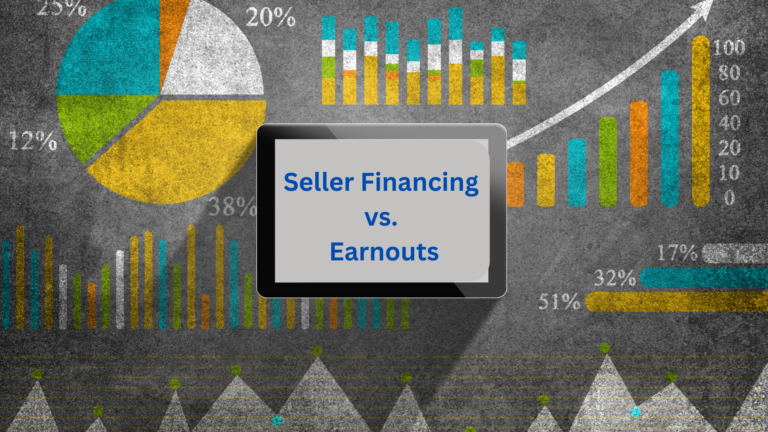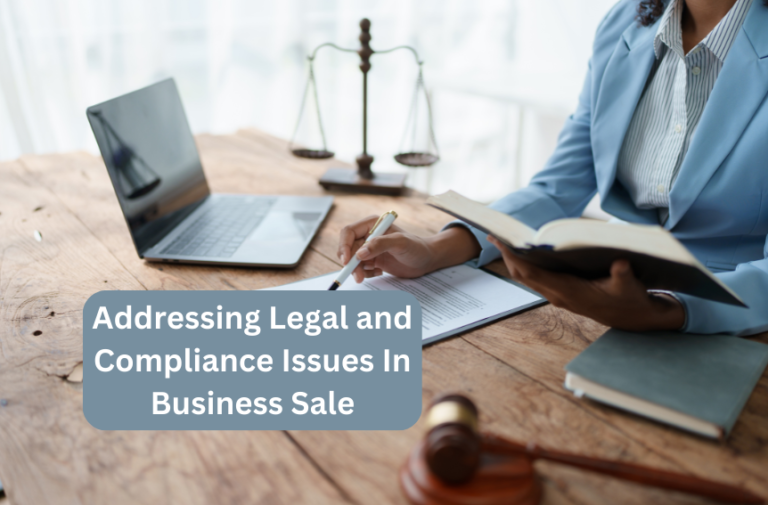Fees and Costs for Selling Your Business
Selling a business involves more than just finding a buyer. As a business seller, you’ll encounter a variety of costs at the closing table that can significantly impact your net proceeds. Many business owners overlook these expenses and are often surprised by the final check they receive. To avoid unexpected financial pitfalls, here’s a breakdown of the typical costs you can expect when selling your business.
1. Taxes
Taxes are likely the largest cost you’ll face when selling your business. The sale will trigger several tax implications, and understanding how much you’ll owe is critical for estimating your net sale proceeds. Minimizing your tax liability is essential, and this is where a business advisor can be invaluable. Although we do not provide tax advice, we can connect sellers with qualified tax advisors. With their expertise, a tax advisor or accountant can help you structure the sale in a tax-efficient manner. Additionally, if you’re selling real estate along with your business, you may need to account for real estate transfer taxes, depending on your location.
2. Business Broker Fee
For many sellers, the business broker fee is the second-largest expense. For smaller transactions, commissions typically range from 10% to 12% of the purchase price, or a fixed amount agreed upon with the broker. For larger transactions, commissions are often tiered, with varying percentages depending on the size of the deal. A good business advisor can help you navigate the process and ensure you get the most value from the transaction.
3. Attorney Fees
Attorney fees can vary based on factors such as the complexity of the deal, whether real estate is included, and if a franchise agreement is involved. Attorneys typically charge for their time and expertise, so the more intricate the transaction, the higher the costs. Some attorneys charge hourly, while others may offer a fixed fee based on an estimated time commitment. A trusted business advisor can recommend experienced attorneys and help ensure that your legal interests are protected during the sale.
4. Accountant Fees
An experienced accountant plays a critical role in assessing the tax implications of the sale. Like attorneys, accountants typically charge an hourly fee, but some may offer fixed-price options depending on the scope of services provided. Both accountants and attorneys are essential in ensuring that all legal and tax matters are resolved before the sale is finalized. A business advisor can help you find the right professionals to work with, ensuring that everything runs smoothly.
5. Transfer Fees
If you’re selling a franchise, there’s likely a “transfer fee” outlined in your franchise agreement. This fee covers the franchisor’s costs for evaluating the buyer and preparing the necessary documents. Be sure to account for this when determining your sale price and calculating your net proceeds. A business advisor with experience in franchise sales can help you navigate these fees and ensure all contractual obligations are met.
6. Lease-Associated Fees
Some leases include an assignment fee triggered when you transfer the lease to a new buyer. This fee covers the landlord’s expenses for legal reviews and preparing the lease assignment. Additionally, certain leases require tenants to pay a percentage of the sale price or a fixed fee to the landlord upon selling the business. While this was once rare, such clauses are becoming more common, so reviewing your lease agreement is essential. A business advisor can help you understand these clauses and how they might affect your sale proceeds.
7. Debt Prepayment Penalty
If your business or property has any outstanding mortgages, credit lines, or loans, you may face a prepayment penalty upon the sale. These penalties can be substantial, so it’s important to review your loan agreement again and factor them into your sale cost if needed. In some cases, you may be able to avoid the penalty by assigning the debt to the buyer, but that will be subject to the lender’s approval of the buyer.
8. Escrow Fee & Closing Costs
Escrow fees are another important consideration when selling your business. Escrow is a neutral third party that manages the transaction, ensuring that both the buyer and seller meet all conditions of the sale before the funds are released. Typically, escrow fees are shared between the buyer and seller, but the exact division can vary depending on the agreement. These fees are usually calculated as a percentage of the total sale price or based on a flat fee structure. The escrow company will also charge for additional services, such as document preparation, wire transfers, or handling any holdback funds. It’s essential to factor in these fees when estimating your net proceeds from the sale.
Final Thoughts
These are the primary costs associated with selling your business, but there may be additional fees and penalties depending on your specific transaction. Understanding these obligations before listing your business and signing contracts is crucial. If you fail to account for these expenses, you could not only miss out on potential profits but could also end up paying out of pocket to close the deal.
Working with a business advisor who understands the complexities of selling a business will help ensure you’re prepared for these costs. By proactively addressing these expenses, you can achieve a smoother, more successful sale.
To schedule a free consultation with your local business advisor in California, contact us here.













